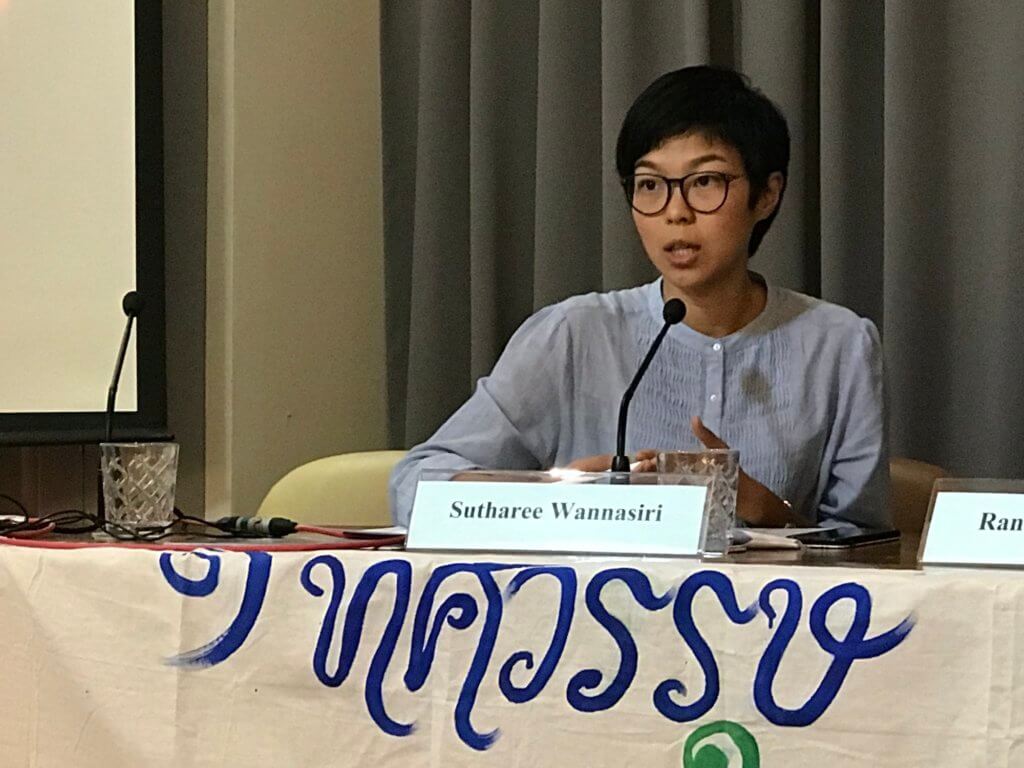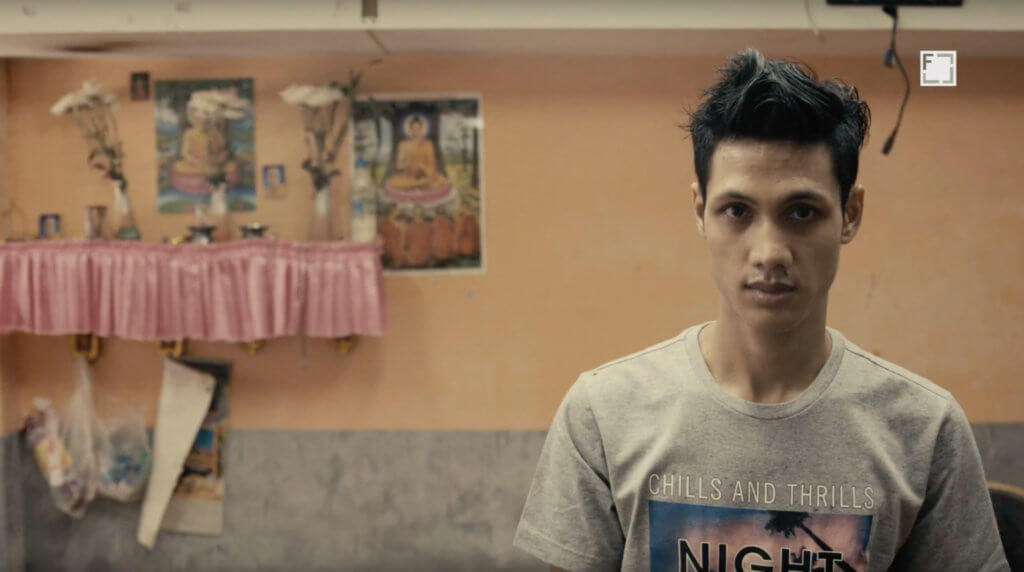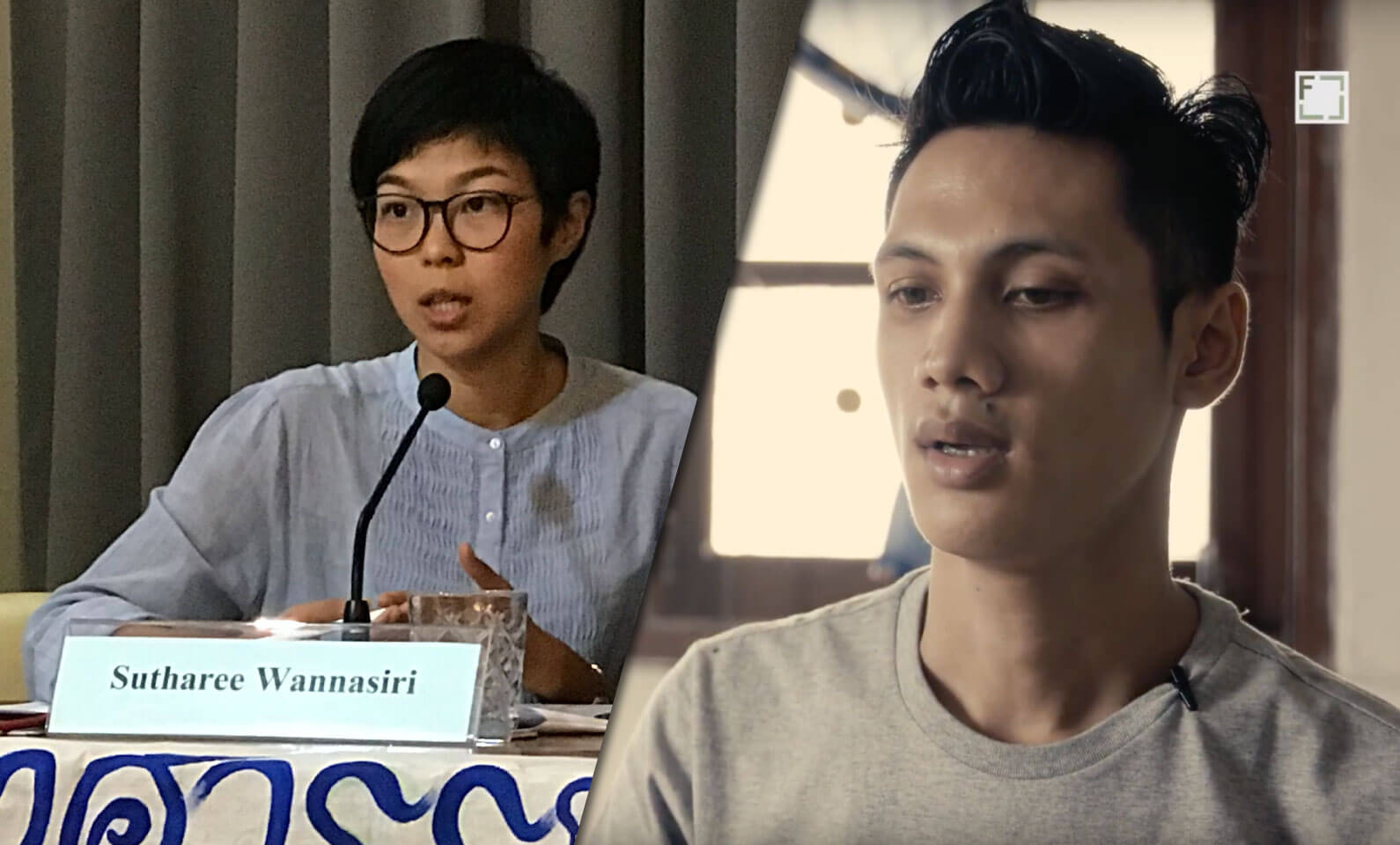Protect human rights defenders from judicial harassment
(Bangkok, November 28, 2018)—Thai authorities and Thammakaset Company Limited should immediately drop criminal and civil defamation complaints against two human rights defenders for their involvement in activities related to a Fortify Rights film, Fortify Rights said today. The Bangkok Criminal Court is scheduled to hold preliminary hearings on the criminal defamation complaints on December 3.
“These complaints are a form of judicial harassment and should be dropped immediately,” said Amy Smith, Executive Director of Fortify Rights. “Instead of allowing companies to target and attack human rights defenders, the Thai authorities should protect and promote human rights defenders.”
The complaints, filed by Thammakaset in October 2018, relate to a 107-second film published by Fortify Rights on October 4, 2017 that called on the Thai authorities to drop criminal defamation charges against 14 migrant workers at the Thammakaset-operated chicken farm in Lopburi Province and to decriminalize defamation in Thailand. In the film, three former workers describe how Thammakaset brought criminal defamation charges against them after the workers reported labor violations to the Thai authorities, including unlawfully low wages, failure to pay overtime wages, and confiscation of their identity documents, including passports.

Former Fortify Rights Human Rights Specialist Sutharee Wannasiri is facing criminal defamation under sections 326 and 328 of the Thailand Criminal Code for a social media posting of the Fortify Rights film. Human rights defender and former employee of Thammakaset Nan Win, who is featured in the film, is also facing criminal defamation under sections 326 and 328 of the Thailand Criminal Code. If convicted, both human rights defenders face up to two years in prison and fines of up to 200,000 Thai baht (US$6,050). In a separate civil complaint, Thammakaset is also seeking five million Thai baht (US$151,400) from Sutharee Wannasiri for alleged damages to company’s reputation for her social media post.
Thammakaset—a Thai-owned poultry company in Lopuri Province—previously brought criminal defamation complaints against 14 migrant workers in October 2016 and against labor rights activist Andy Hall in November 2016. The company brought further charges against two migrant workers in August 2017 for alleged theft and similar alleged theft charges against woman human rights defender and coordinator of the Migrant Worker Rights Network (MWRN) Suthasinee Kaewleklai. Thai courts struck down these previous criminal complaints.
Apart from dismissing the fresh complaints brought by Thammakaset, the Thai government should also decriminalize defamation, said Fortify Rights.

Under international law, imprisonment is considered a disproportionate punishment for acts of defamation. The 2017 Constitution of Thailand protects the right to freedom of expression as does Article 19 of the International Covenant on Civil and Political Rights, to which Thailand is a state party.
Judicial harassment in the form of SLAPP (Strategic Litigation Against Public Participation) lawsuits is common in Thailand.
“There is no room for complaints like these in the Thai justice system. If the Thai authorities are genuine about their commitments under international and domestic law, they should prevent further spurious complaints by taking legislative action,” Amy Smith said. “Anti-SLAPP legislation would protect human rights defenders and promote responsible, rights-respecting businesses in the country.”
